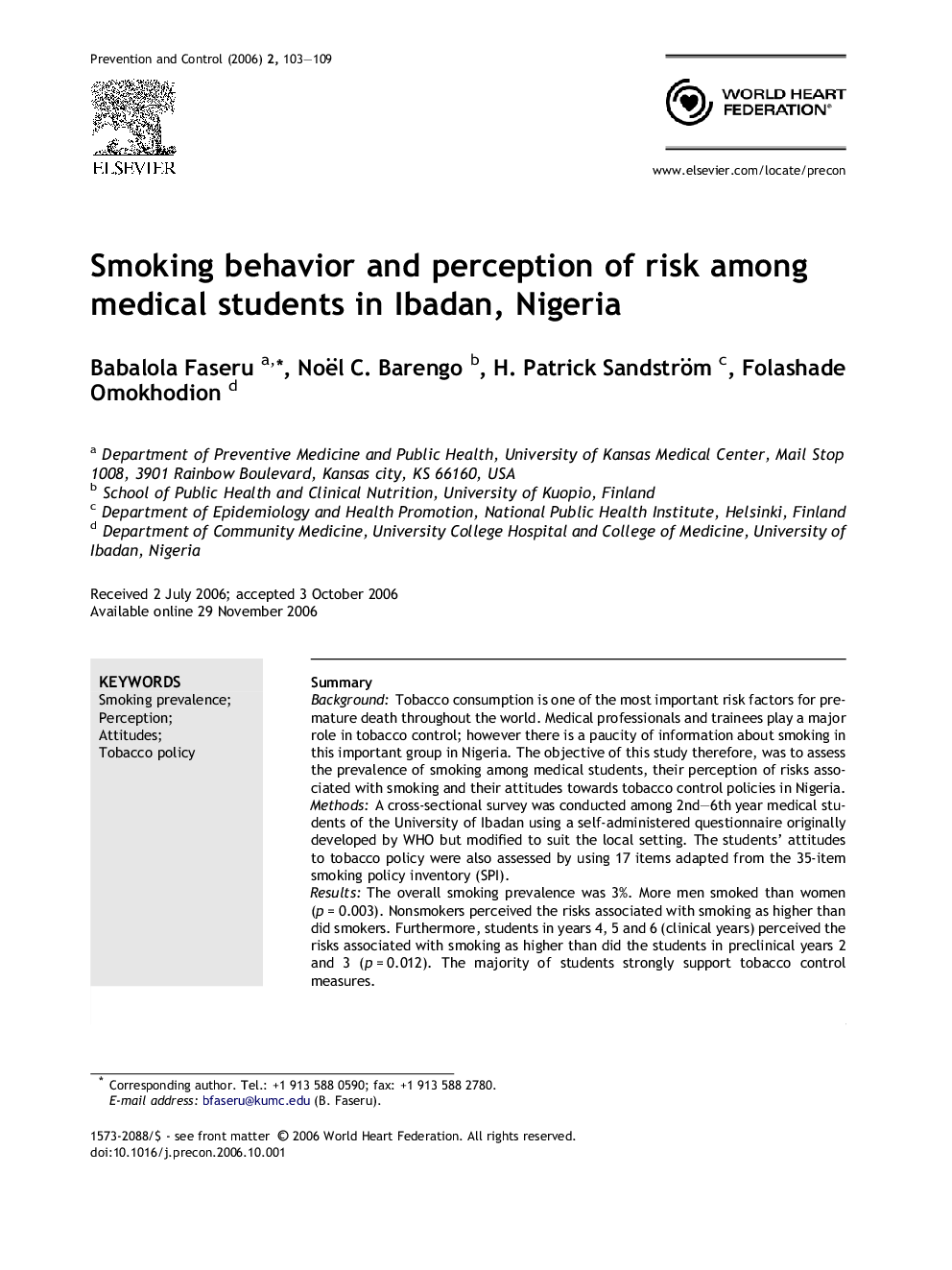| Article ID | Journal | Published Year | Pages | File Type |
|---|---|---|---|---|
| 3006155 | Prevention and Control | 2006 | 7 Pages |
SummaryBackgroundTobacco consumption is one of the most important risk factors for premature death throughout the world. Medical professionals and trainees play a major role in tobacco control; however there is a paucity of information about smoking in this important group in Nigeria. The objective of this study therefore, was to assess the prevalence of smoking among medical students, their perception of risks associated with smoking and their attitudes towards tobacco control policies in Nigeria.MethodsA cross-sectional survey was conducted among 2nd–6th year medical students of the University of Ibadan using a self-administered questionnaire originally developed by WHO but modified to suit the local setting. The students’ attitudes to tobacco policy were also assessed by using 17 items adapted from the 35-item smoking policy inventory (SPI).ResultsThe overall smoking prevalence was 3%. More men smoked than women (p = 0.003). Nonsmokers perceived the risks associated with smoking as higher than did smokers. Furthermore, students in years 4, 5 and 6 (clinical years) perceived the risks associated with smoking as higher than did the students in preclinical years 2 and 3 (p = 0.012). The majority of students strongly support tobacco control measures.ConclusionsSmoking generally is not common among medical students in Ibadan. Although the clinical students perceived the risks associated with smoking as higher than did the preclinical students, the proportion of smokers among clinical students was higher but the difference was not statistically significant (p = 0.093).
